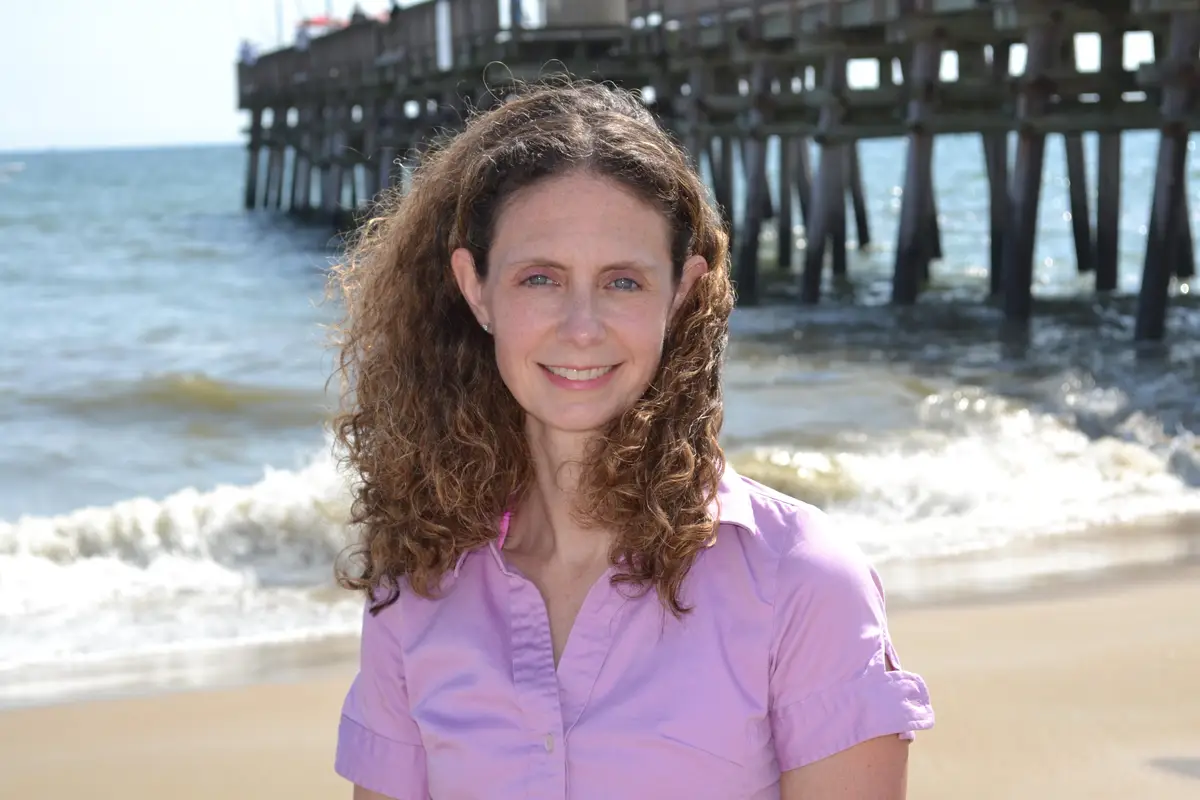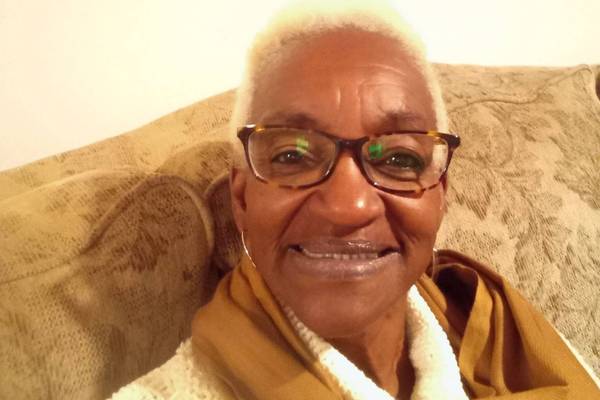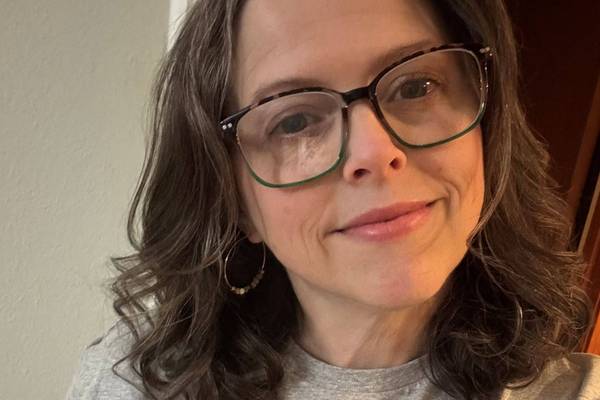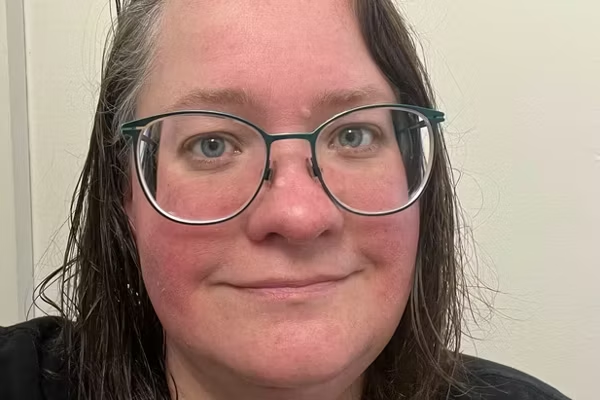March 29 to April 4 is Autism Awareness Week.
I woke up in the hospital in the middle of the night to the worst pain of my life. I felt my jugular vein in my neck pulsing, and I was crying uncontrollably. The doctors whisked me off for an emergency CT scan of my head and neck, and I saw my life flash before my eyes while contrast dye warmed my body and breast milk leaked onto my hospital gown.
Before I got checked in to the hospital, I'd had uncontrollable crying fits for two weeks, going in and out of the ER for stroke-like symptoms. None of the specialists could explain my visual disturbances, temporary aphasia, excruciating head and neck pain, and tingling and weakness down the entire right side of my body. Months after I left the hospital, a headache specialist told me that I had experienced a cycle of sporadic hemiplegic migraine, a severe form of migraine with aura that can lead to a profound coma.
This hospitalization was by far the lowest point of my life. It took me by surprise because I had no idea that I was unwell. I was in my late thirties. I was happily married with three young children. I wouldn't fully understand why I ended up in the hospital until a year later when I began to try to understand my younger daughter's uncontrollable crying fits.
After hours upon hours of research, I began to suspect that not only was she autistic, but I was too. Like my younger daughter, I was selectively mute as a child, which means I was only comfortable talking to close family and a few friends. She and I both struggled with social interactions, changes in routines and sensory issues. A clinical psychologist finally confirmed what I suspected, and my younger daughter and I were officially diagnosed with autism spectrum disorder (ASD) on the same day.
I now had a name for the meltdowns I'd had in the hospital a year before and at other times throughout my life — autistic meltdowns. I knew then that the extreme exhaustion and stress in all areas of my life before I got diagnosed with ASD had led to autistic burnout and my hospitalization. Autistic burnout is extreme mental, physical and emotional exhaustion that sometimes results in a loss of function and skills. My body and mind simply could not handle the stress of taking care of myself and my family.
Learning to recognize the signs of autism in my younger daughter and then myself improved my life immeasurably. Once I was diagnosed, I was able to make the lifestyle changes I desperately needed.
I'd always known I was different, but I didn't know why, so it was a relief to finally have an answer. As an undiagnosed autistic person, I had been trying to fit into a world that was designed for neurotypical people. But after my diagnosis, I no longer felt the pressure to mask my differences to fit in. I finally gave myself permission to just be.
I now find myself telling other people that I don't want to do overwhelming tasks, change my routines, or navigate uncomfortable social situations. My husband does all the grocery shopping for our family of five. I find it overwhelming because of my difficulty with executive functioning — the way the brain organizes information. I also don't like to go to gas stations, especially if it's not the same one every time, because I don't know what to expect. I'm uncomfortable at social events and with communication that doesn't have a specific purpose. If I attend a social gathering, I usually escape to a quiet place to avoid sensory overload.
In spite of my desire for consistency, there have been times throughout my life that I've surprised myself with accepting changes to my everyday routines. Thanks to my sense of adventure, I've traveled to 20 countries around the world — each time, not knowing what to expect. I lived in the United Arab Emirates for four years too. Sometimes my desire to explore outweighs my fear of the unknown.
Now in my mid-40s, I've achieved good work-life balance and know my limits. If I get overwhelmed, I ask my husband to do more than his share of taking care of our kids to avoid the stress of not being able to do it all. But after a lifetime of unknowingly hiding my autism, I slip back into my old ways too, trying to please other people by not asking for accommodations I need or by agreeing to do something I know won't be good for my own mental health.
With my invisible disability, I have daily struggles that many people can't see. But I also have strengths because of my differences, not in spite of them. I consider autism to be part of my identity. I can't separate my autism from myself. I couldn't imagine my life any other way, and I wouldn't change it if I could.
Having autism can have its benefits. One of the strengths of my autism is my ability to hyperfocus. I was the first in my family to attend college, and I went on to get my doctorate in English and to become a tenured English professor. I also think in pictures. The experiences of my life play like videos in my imagination, which has led to my career as an essayist and author.
As an autistic advocate for myself and my kids (my son was diagnosed a year after my daughter and I), I wrote a children's picture book, "Too Sticky! Sensory Issues with Autism," based on my own and my kids' experiences living with autism and sensory issues. It's the book I never knew I needed but that I wish I'd had growing up. I wrote it because I wanted my autistic children to be able to see themselves in a book. I also hope other kids and adults who read it will be more accepting of autism.
I'm proud of my autistic identity, and I'm raising my kids to be proud of their identities too. I want to live in a world where autism is accepted and neurodiversity is celebrated. My autism diagnosis not only changed my life — but saved it.
Jen Malia is Associate Professor of English at Norfolk State University and the author of "Too Sticky! Sensory Issues with Autism."
- Autism in adults: Signs, symptoms, and diagnosis ›
- Solving the Problem of Late Autism Diagnosis | UVA School of ... ›
- Autism Symptoms in Adults From Football Star Diagnosed at 30 ›
- Autism in adults: symptom patterns and early childhood predictors ... ›
- Is it Autism and If So, What Next? A Guide for Adults | Autism Speaks ›
- Autism in Adults: Spectrum Disorder Symptoms & Signs ›






